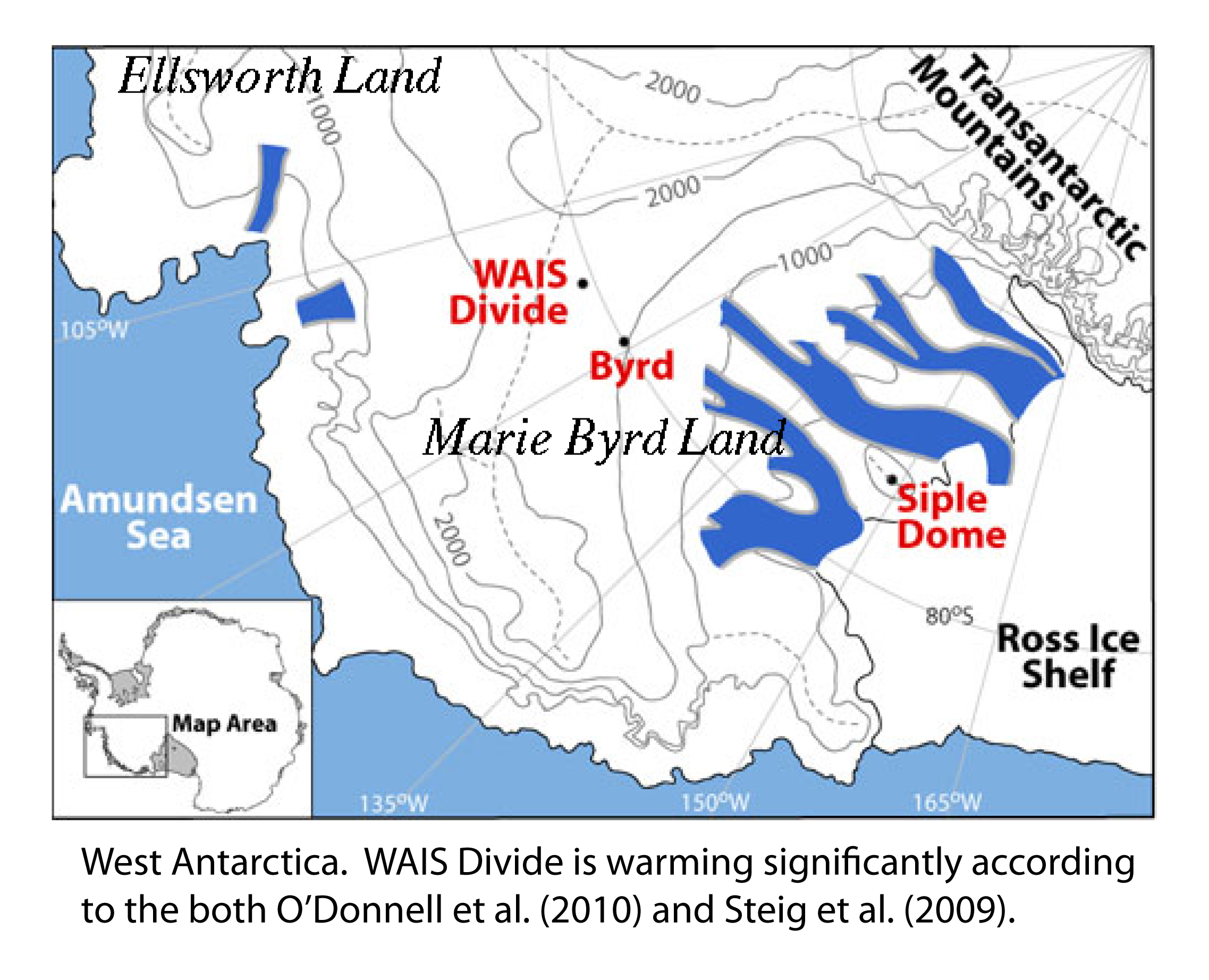There are two new papers in Nature this week that go right to the heart of the conversation about extreme events and their potential relationship to climate change. This is a complex issue, and one not well-suited to soundbite quotes and headlines, and so we’ll try and give a flavour of what the issues are and what new directions these new papers are pointing towards.
[Read more…] about Going to extremes
Archives for 2011
From blog to Science
There is a lot of talk around about why science isn’t being done on blogs. It can happen though, and sometimes blog posts can even end up as (part of) a real Science paper. However, the process is non-trivial and the relatively small number of examples of such a transition demonstrate clearly why blog science is not going to replace the peer-reviewed literature any time soon.
O’Donnellgate
or…Some thoughts on Personal Responsibility and the Peer Review Process
Eric Steig
Ryan O’Donnell made a series of serious of allegations against me at ClimateAudit, in the context of our friendly dispute about whether his new paper in the Journal of Climate supports or ‘refutes’ my own results, published in Nature.
To his credit, Ryan has offered to retract these allegations, now that he is a little better acquainted with the facts. However, it is still important, I think, to set the record straight from my point of view. There were such a great number of claims about my “dishonesty,” “duplicity” and [implied] stupidity, all of which are untrue, that it really isn’t worth trying to respond in any detail. Just responding to the main two ought to suffice to make the point. [Read more…] about O’Donnellgate
The Starship vs. Spaceship Earth
Eric Steig & Ray Pierrehumbert

It turns out that Brower has wondered the same thing, and in a recent article in The Atlantic, he speculates on the answer. “How could someone as smart as Freeman Dyson,” writes Brower, “be so wrong about climate change and other environmental concerns..?”
[Read more…] about The Starship vs. Spaceship Earth
Unforced variations: Feb 2011
This month’s open thread…
… continued here.
West Antarctica: still warming
The temperature reconstruction of O’Donnell et al. (2010) confirms that West Antarctica is warming — but underestimates the rate
Eric Steig
At the end of my post last month on the history of Antarctic science I noted that I had an initial, generally favorable opinion of the paper by O’Donnell et al. in the Journal of Climate. O’Donnell et al. is the peer-reviewed outcome of a series of blog posts started two years ago, mostly aimed at criticizing the 2009 paper in Nature, of which I was the lead author. As one would expect of a peer-reviewed paper, those obviously unsupportable claims found in the original blog posts are absent, and in my view O’Donnell et al. is a perfectly acceptable addition to the literature. O’Donnell et al. suggest several improvements to the methodology we used, most of which I agree with in principle. Unfortunately, their actual implementation by O’Donnell et al. leaves something to be desired, and yield a result that is in disagreement with independent evidence for the magnitude of warming, at least in West Antarctica.

[Read more…] about West Antarctica: still warming
Friday round-up
A few items of interest this week.
Paleoclimate:
1. A new study by Spielhagen and co-authors in Science reconstructs temperatures of North Atlantic source waters to the Arctic for the past two millennia, adding another very long-handled Hockey Stick to the ever-growing league.
2. From last week, an article in Science Express by Buntgen et al reconstructing European summer temperature for the past 2500 years, finding that recent warming is unprecedented over that time frame, and providing some historical insights into the societal challenges posed by climate instability (listen here for an interview with mike about the study on NPR’s All Things Considered).
3. The team of ice core researchers at WAIS Divide reaches its goal of 3300 meters of ice. [WAIS Divide, central West Antarctica, is a site of significant warming in Antarctica, over at least the last 50 years, a result recently confirmed by the study of O’Donnell et al. (2010); Stay tuned for more on the that soon].
Other Miscellaneous Items:
1. More in Nature on data sharing.
2. A great primer in Physics Today on planetary energy balance from our very own Ray Pierrehumbert (link to pdf available here).
3. Now shipping are David and Ray’s The Warming Papers and Ray’s Principles of Planetary Climate.
The obvious answer
Climate science appears to be just like any other science. At least, this is the conclusion from a fresh publication by Marianne Ryghaug and Tomas Moe Skjølsvold (“The global warming of climate science: Climategate and the construction of scientific facts” in International studies in the philosophy of science). This finding is not news to the research community, but this analysis still hints that everything is not as it should be – because why would anyone report from a crime scene if the alleged crime has not even been committed?
2010 updates to model-data comparisons
As we did roughly a year ago (and as we will probably do every year around this time), we can add another data point to a set of reasonably standard model-data comparisons that have proven interesting over the years.
[Read more…] about 2010 updates to model-data comparisons
Getting things right
Last Monday, I was asked by a journalist whether a claim in a new report from a small NGO made any sense. The report was mostly focused on the impacts of climate change on food production – clearly an important topic, and one where public awareness of the scale of the risk is low. However, the study was based on a mistaken estimate of how large global warming would be in 2020. I replied to the journalist (and indirectly to the NGO itself, as did other scientists) that no, this did not make any sense, and that they should fix the errors before the report went public on Thursday. For various reasons, the NGO made no changes to their report. The press response to their study has therefore been almost totally dominated by the error at the beginning of the report, rather than the substance of their work on the impacts. This public relations debacle has lessons for NGOs, the press, and the public.
[Read more…] about Getting things right